
The announcement came with a somber gravity, a stark declaration that shattered years of fervent speculation and tightly guarded privacy. On November 22, 1991, the world received official confirmation of what many had long suspected: Freddie Mercury, the incandescent frontman of Queen, had been diagnosed with AIDS. This revelation, published in newspapers on a Saturday morning, set the stage for a tragic sequence of events that would unfold with startling speed, leaving an indelible mark on music history and the global conversation surrounding the HIV/AIDS crisis.
Mercury’s life had always been a vibrant tapestry woven with theatricality, unbridled talent, and an intensely private personal sphere. For decades, he had navigated the glare of public fascination with a captivating mystique, allowing his art to speak volumes while his inner world remained largely shielded from scrutiny. Yet, as the 1980s gave way to the 1990s, the physical toll of his illness became increasingly difficult to conceal, sparking relentless rumors that foreshadowed the devastating truth.
This article aims to provide an in-depth, authoritative account of the circumstances surrounding Freddie Mercury’s final days, drawing exclusively from the factual information available. It seeks to illuminate the key moments leading up to his passing, explore the challenges he faced, and underscore the profound impact of his journey from humble beginnings to rock ‘n’ roll legend, all within the context of a devastating global health crisis.
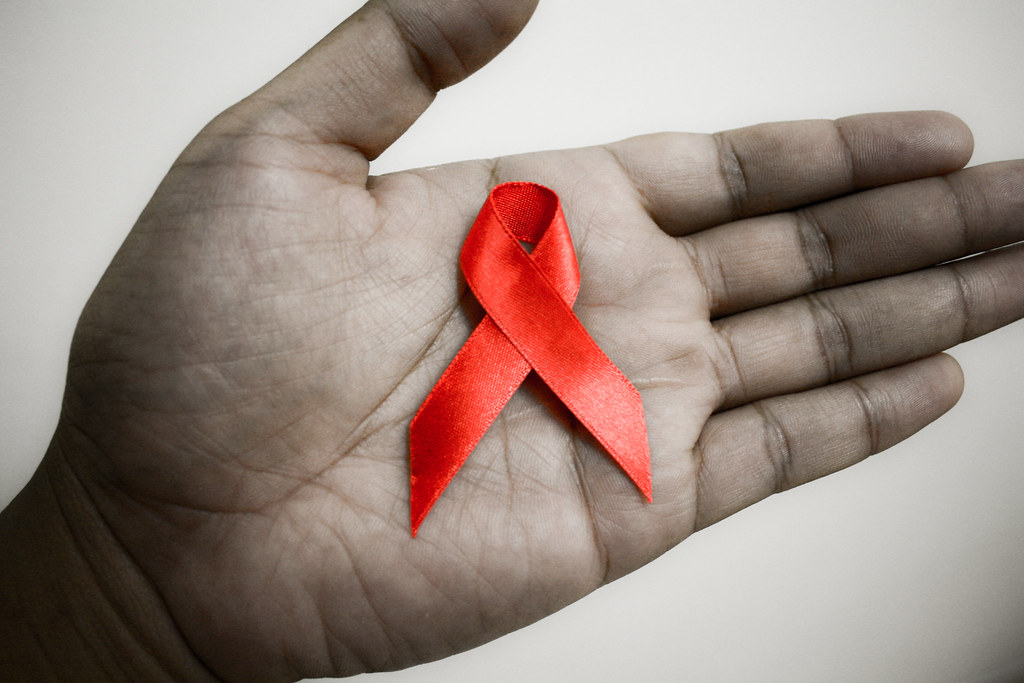
1. **The Public Revelation of His AIDS Diagnosis**
Late on Friday, November 22, 1991, Freddie Mercury released an official statement to the press, confirming he had been diagnosed with AIDS. This public declaration, which ran in newspapers the following Saturday morning, marked a profound turning point after years of intense speculation about his health and personal life. The statement served as an explicit confirmation of the rumors that had circulated widely, bringing an end to a period of silence maintained by the fiercely private artist.
For those outside his immediate circle, this public admission was the first definitive peek behind the glittering curtain of his public persona. It was a moment of stark reality for a global audience accustomed to Mercury’s vibrant and seemingly invincible stage presence. The brevity and timing of the statement suggested a profound urgency, hinting at the severity of his condition.
In the broader context of the HIV/AIDS crisis, Mercury’s announcement carried significant weight. At a time when stigma and misinformation often surrounded the disease, the revelation from such a globally recognized figure highlighted critical conversations about healthcare and societal attitudes. It placed a prominent face on an illness that had, for too long, been shrouded in fear and prejudice, contributing, albeit tragically, to greater public awareness.
Read more about: Defying Fate: The Electrifying Life and Enduring Legacy of Disco Icon Sylvester

2. **The Tragic Date and Specific Cause of Death**
Just 24 hours after his public revelation, on Sunday, November 24, 1991, Freddie Mercury died in his home in Kensington, London. He passed away at the age of just 45, a life cut tragically short at the zenith of his artistic influence and global fame. The swiftness of his passing after the public announcement underscored the advanced stage of his illness.
His cause of death was officially recorded as AIDS-related bronchial pneumonia. This specific complication is common in individuals with severely compromised immune systems due to HIV/AIDS, illustrating the devastating physical toll the disease had taken on the legendary singer. The diagnosis and subsequent death brought a poignant and abrupt end to his battle with the illness.
Mercury’s death sent shockwaves across the globe, not only for the loss of a musical icon but also for the stark reality it presented regarding the ongoing AIDS crisis. It brought the epidemic into sharp focus for millions, underscoring the indiscriminate nature of the disease and the urgent need for greater understanding, compassion, and medical advancements. The world mourned not just a performer, but a life that had bravely navigated the complexities of fame and a deeply personal struggle.
Read more about: Rosa Roisinblit: A Century of Unyielding Truth-Seeking in Argentina’s Darkest Hour

3. **Early Speculation and Whispers Around His Health**
Long before his public statement in November 1991, speculation about Freddie Mercury’s health had become a pervasive undercurrent in the tabloids and among his fanbase. Recent photographs of the Queen frontman had shown him looking noticeably thinner, a visible change from his famously robust and energetic stage presence. These images fueled widespread rumors and concerns, prompting public discourse about his well-being.
Rumors that Mercury had contracted AIDS had swirled since as early as 1986, reflecting the heightened public awareness and fear surrounding the epidemic at the time. Despite the persistent whispers and the visual evidence of his changing appearance, few people outside his immediate and tightly knit circle could have truly known the full extent of his illness, or just how agonizing his final days would ultimately be.
Mercury, known for his commitment to keeping his private life away from public consumption, gave little energy to feeding these rumors, choosing instead to focus on his art. This dedication to privacy, while characteristic of the singer, inadvertently contributed to the dramatic impact of his eventual public confession. The gap between public speculation and the private reality of his severe illness created a poignant narrative that captivated the world upon his passing.
Read more about: Celine Dion’s Unprecedented Revelation: The True Story Behind 14 Years of Silence and Her Stiff Person Syndrome Battle

4. **Freddie Mercury’s Journey: From Farrokh Bulsara to Music Stardom**
Freddie Mercury, born Farrokh Bulsara on September 5, 1946, in Stone Town, Zanzibar, embarked on a remarkable journey that would transform him into one of the most iconic figures in music history. Born to Parsi parents and raised within the Zoroastrian faith, his early years were spent in a unique cultural blend. He began taking piano lessons at the age of seven while living with relatives and was subsequently enrolled in British boarding schools in India from the age of eight, where he received a traditionally Western education.
After completing his secondary school studies, Mercury returned to Zanzibar. However, in 1964, at the age of 18, he and his family were compelled to flee during the violent Zanzibar Revolution, seeking refuge from the insurrection. They eventually settled in Middle, England, a move that would prove pivotal for Mercury’s burgeoning musical ambitions. There, he pursued his artistic passions, studying graphic art and design at Ealing Art College, a skill he would later apply to his band’s iconic imagery.
It was in England that Mercury truly began to stretch his musical wings, forming the band Queen in 1970 with guitarist Brian May and drummer Roger Taylor; bassist John Deacon joined in 1971. Despite initial reservations from others, Mercury insisted on the name “Queen,” noting its regal connotations and universal appeal, while acknowledging its “gay connotations” as “just one facet of it.” Around this time, he legally changed his surname from Bulsara to Mercury and designed the band’s famous crest, ingeniously incorporating the zodiac signs of all four members.
Mercury’s artistry as Queen’s lead vocalist was unparalleled. His natural speaking voice fell in the baritone range, yet he delivered most songs in the tenor range, with a known vocal range extending from bass low F (F2) to soprano high F (F6), capable of belting up to tenor high F (F5). Collaborator Montserrat Caballé praised his “astonishing” technique, musicality, and ability to convey emotion, while Roger Daltrey of The Who called him “the best virtuoso rock ‘n’ roll singer of all time” for his stylistic versatility.
His songwriting prowess was equally formidable, with Mercury writing ten of the seventeen songs featured on Queen’s *Greatest Hits* album, including masterpieces like “Bohemian Rhapsody” and “We Are the Champions.” He embraced a wide array of genres, from rockabilly to heavy metal, gospel, and disco, famously stating, “I hate doing the same thing again and again and again. I like to see what’s happening now in music, film and theatre and incorporate all of those things.” Despite composing musically complex material, he admitted he could barely read music, primarily composing on the piano and later using his graphic design skills to craft the iconic Queen crest.
Beyond his vocal and compositional brilliance, Mercury was renowned for his electrifying live performances. He displayed a highly theatrical style, expertly commanding stadium audiences and fostering immense crowd participation. David Bowie observed that Mercury “took it over the edge” in theatrical rock performance, while Brian May noted his unique ability to make “the last person at the back of the furthest stand in a stadium feel that he was connected.” His legendary performance at Live Aid in 1985, featuring “The Note Heard Round the World,” stands as a testament to his unparalleled showmanship and remains one of the greatest live performances in rock history.
Although self-deprecating about his instrumental skills, Mercury had formal piano training as a child and later learned guitar. Brian May attested to his “wonderful touch on the piano,” noting his “incredible rhythm, incredible passion and feeling.” He played piano on many Queen hits, including “Bohemian Rhapsody” and “Killer Queen,” and even played rhythm guitar on stage and in the studio for songs like “Crazy Little Thing Called Love.” His instrumental contributions, though often overshadowed by his voice and stage presence, were integral to Queen’s sound.

5. **The Tabloids’ Persistent Focus on His Sexuality**
For several years, Freddie Mercury’s uality had been a consistent subject of speculation and inquiry in the press. His romantic life, publicly linked to both men and women, provided fertile ground for tabloids keen on uncovering details of the intensely private artist. Despite the pervasive nature of these rumors, Mercury largely kept his personal life out of the public domain, focusing his formidable energy instead on his prodigious artistic output with Queen.
He generally gave little energy to feeding the relentless rumors, instead navigating press questions with a characteristic wit and a touch of cheekiness. Mercury’s approach was often to deflect or sidestep direct inquiries, maintaining a dignified distance that allowed him to control the narrative of his public image, even as gossip columns continued to churn with conjecture.
After Freddie Mercury’s death, Gay Times writer John Marshall offered a perceptive insight into the singer’s stance on his personal life. Marshall wrote that Mercury “was a ‘scene-queen,’ not afraid to publicly express his gayness, but unwilling to analyse or justify his ‘lifestyle.’” Marshall concluded, “It was as if Freddie Mercury was saying to the world, ‘I am what I am. So what?’ And that in itself for some was a statement.” This perspective suggests that Mercury’s refusal to label or explain his uality was, in itself, a powerful act of self-acceptance and defiance in an era often marked by rigid social norms.
This unwavering commitment to authenticity, coupled with his extraordinary talent, solidified his legacy far beyond his musical achievements. It cemented his status as a queer icon, particularly significant during the height of the HIV/AIDS crisis, when his willingness to live openly, even implicitly, as himself resonated deeply within the LGBTQ+ community and beyond.
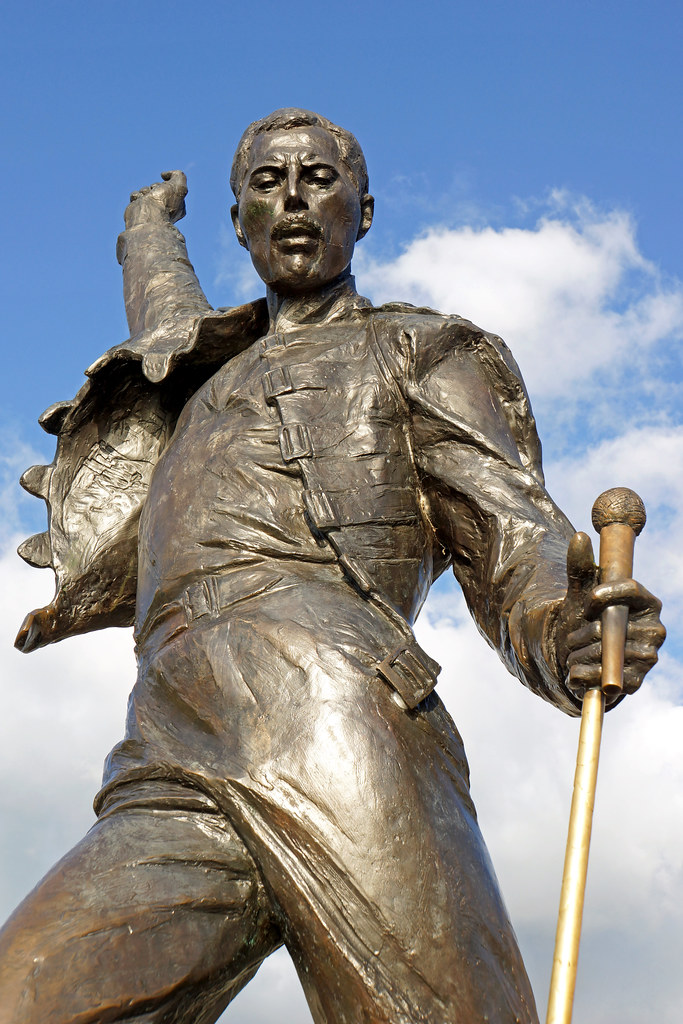
6. **The Formal Diagnosis of AIDS**
The progression of Freddie Mercury’s illness had early, subtle indicators that, in retrospect, hinted at his private struggle. As early as 1982, while in New York, Mercury reportedly visited a doctor regarding a lesion on his tongue. This particular symptom has been identified by *The Advocate* as a potential early sign of his eventual HIV infection, though its significance would not be fully understood until much later.
By 1986, the British press, ever watchful, had gotten wind of a significant story: rumors circulated that Mercury had undergone a blood test in Westminster. This incident further fueled the existing speculation about his health, tightening the web of public curiosity around his private circumstances. While not yet a formal public announcement, such reports indicated that his condition was becoming increasingly difficult to entirely conceal.
It was in April 1987 that Freddie Mercury received a formal diagnosis of AIDS. This private confirmation of his illness marked a critical turning point in his life. Although the public was not immediately informed, this diagnosis initiated a period of intensified medical care and a profound adjustment to his personal and professional life, including a gradual retreat from public view, as he bravely confronted the devastating reality of his condition.
Read more about: Defying Fate: The Electrifying Life and Enduring Legacy of Disco Icon Sylvester
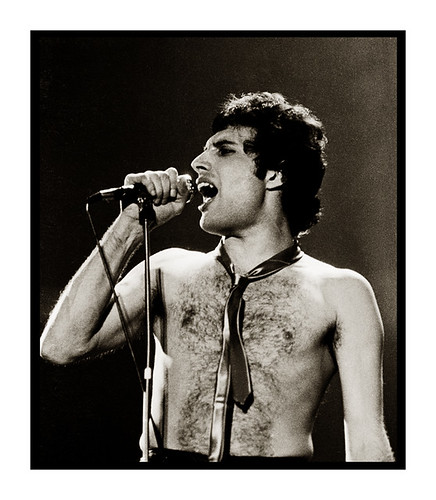
7. **Retreat from the Limelight: His Last Public Performance**
Following his formal diagnosis of AIDS in April 1987, Freddie Mercury began to make fewer public appearances, a noticeable shift from his previously ubiquitous and flamboyant presence. This gradual withdrawal from the public eye was a necessary measure, allowing him to manage his deteriorating health while maintaining his cherished privacy. The reduction in his public engagements was keenly observed by fans and the press alike.
His last time on stage with Queen occurred on February 18, 1990, when the band accepted the Brit Award for Outstanding Contribution to British Music. This was a poignant moment, as many in the press and audience commented on his appearance. He seemed notably thinner, and at times, he appeared weak, a stark contrast to the dynamic, energetic showman the world had come to adore. Despite his physical decline, he remained resolute, showcasing his enduring commitment to Queen and to his art.
This Brit Award appearance was one of the final instances where the world saw Mercury in a formal public setting. After recording his final album with Queen in 1991, he returned to the sanctuary of his home in Kensington. Here, he reunited with Mary Austin, a lifelong confidante, beginning the intensely private chapter that would lead to his final days, away from the demanding glare of the public stage.
The decline in his physical health had become increasingly evident, marking a difficult transition from a life of electrifying performances and global tours to one of quiet solitude. The images from his final public appearances underscored the heavy toll his illness was taking, a powerful testament to the private battle he fought with unwavering determination and an enduring spirit.
Read more about: Beyond the Limelight: Deconstructing Why Child Stars Often Struggle to Thrive as Adults

8. **The Enduring Bond with Mary Austin**
Before the global phenomenon of Queen took shape, Freddie Mercury forged a profound personal connection with Mary Austin, whom he met in 1969 through his bandmate Brian May. Austin, then working at the fashion boutique Biba in Kensington, soon became Mercury’s long-term partner, and they shared a home in West Kensington, London, for many years, building a life together before Queen’s ascent to international fame.
Their romantic relationship ultimately concluded in December 1976 when Mercury, exploring his uality, confessed his true orientation to Austin. Despite this pivotal shift, their bond remained exceptionally deep and unwavering throughout his life. Mercury often referred to Austin as his “only true friend,” articulating, “All my lovers asked me why they couldn’t replace Mary, but it’s simply impossible. The only friend I’ve got is Mary, and I don’t want anybody else… To me, it was a marriage. We believe in each other, that’s enough for me.”
This profound connection was evident in his final days, as Austin was among the few individuals present at his home in Kensington. Mercury’s trust and affection for Austin were further underscored in his will, where he bequeathed his London home, Garden Lodge—a residence Austin herself had helped him choose—to her. He is said to have told her, “You would have been my wife, and it would have been yours anyway,” cementing her irreplaceable role in his life until the very end, and beyond.
Read more about: Kris Kristofferson: A Profound Legacy of Song and Screen, Explored Through a Life Well-Lived
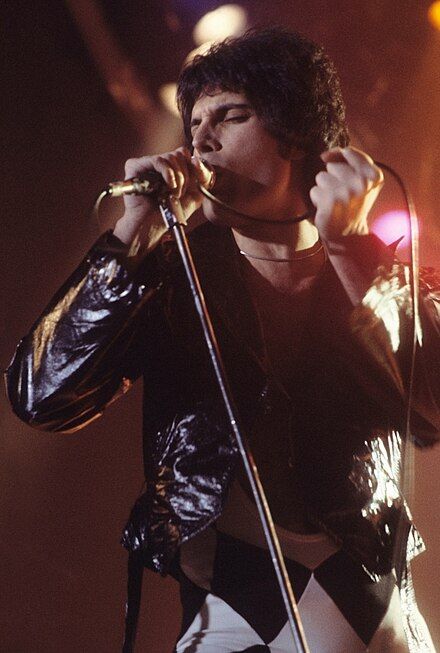
9. **Significant Romantic Relationships and Personal Connections**
Beyond his enduring connection with Mary Austin, Freddie Mercury navigated a complex tapestry of romantic relationships, reflecting his evolving understanding of his own uality. His journey of self-discovery led him to explore relationships outside the conventional boundaries of his era, often away from the glare of public scrutiny.
One significant affair was with David Minns, an American record executive at Elektra Records, which began in 1975. It was this relationship that prompted Mercury to confide in Mary Austin about his uality, marking a turning point in his personal life. Later, during his time living in Munich from 1979 to 1985, Mercury was known to be friends with Austrian actress Barbara Valentin, even briefly sharing a residence with her and her daughter, though he maintained she was a close friend.
During this period in Munich, Mercury also found an “intense love relationship” with German restaurateur Winfried “Winnie” Kirchberger. This relationship was deeply meaningful, with Mercury temporarily residing at Kirchberger’s apartment and even thanking him “for board and lodging” in the liner notes of his 1985 album *Mr. Bad Guy*. He wore a silver wedding band given to him by Kirchberger, a quiet symbol of their commitment.
However, it was Jim Hutton, an Irish-born hairdresser whom Mercury began dating in 1985, that he “considered to be his husband.” Their bond deepened through the years, with Hutton living with Mercury for the last seven years of his life and nursing him through his final illness. Hutton, who tested HIV-positive in 1990, remained steadfastly by Mercury’s side until his death, a testament to a love that Mercury described as built on solace and understanding, affirming that he “honestly couldn’t ask for better.” He cherished a gold wedding band given to him by Hutton in 1986, wearing it until his passing, and was ultimately cremated with it.
Read more about: Behind the Royal Reconciliation: How Prince Harry’s Shifting Stance is Redefining His Relationships and Future

10. **Freddie’s Deteriorating Health and Last Private Moments**
By November 1991, the month of Freddie Mercury’s death, the toll of his illness had become overwhelming, confining him largely to his bed. This stark reality represented a profound contrast to the vibrant, electrifying stage presence that had defined his public life for decades, as his body succumbed to the advanced stages of AIDS-related complications.
Just four days before he died, in a deeply moving moment that underscored his enduring spirit and love for beauty, Mercury made a poignant request. He asked to be carried downstairs from his bedroom so he could gaze upon his prized art collection one final time. The context notes his extreme frailty, indicating that he “weighed so little that it only took one person to carry him,” a stark illustration of his physical decline yet mental fortitude.
That same day, in a testament to his determination to connect with those he loved, Mercury mustered the strength to leave his bed on his own for what would be the last time. He walked to the window to “shout ‘Cooee'” down to Jim Hutton, who was tending to the garden below. By this advanced stage of his illness, Mercury had tragically lost most of his left foot and much of his eyesight, making this simple act of communication a powerful and heartbreaking symbol of his struggle and resilience.
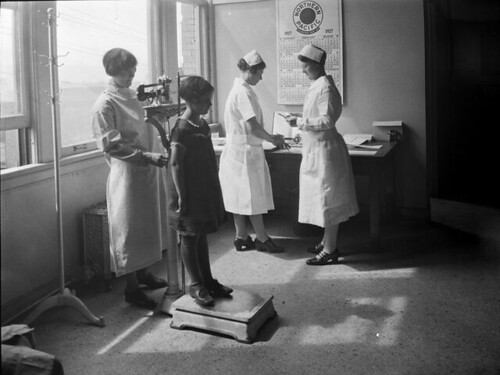
11. **The Final Hours: An Intimate Account of His Passing**
As Freddie Mercury entered his final hours, the gravity of his condition was met with unwavering care and intimate companionship. The night before his passing, Jim Hutton, Mercury’s partner, remained by his side, sleeping next to him on his bed and holding his hand, occasionally offering a gentle squeeze. This silent vigil provided a deeply personal solace in the face of imminent loss.
A poignant moment unfolded when friends wished to remove Mercury’s wedding ring, a golden band given to him by Hutton, in anticipation of swelling that might make its removal difficult after his death. However, Mercury “insisted on wearing it until the end,” a profound symbolic act of devotion. His wish was honored, and he was ultimately “cremated with it,” a final testament to his cherished bond with Hutton.
On Sunday morning, a harrowing event occurred as Hutton assisted Mercury to the bathroom and then carefully laid him back into bed. Suddenly, Hutton heard a “deafening crack,” describing it as sounding “like one of Freddie’s bones breaking, cracking like the branch of a tree.” Mercury “screamed out in pain and went into a convulsion,” a traumatic and agonizing episode that revealed the immense physical suffering he endured in his final moments.
Following this devastating event, a doctor administered morphine to help settle Mercury, providing a measure of relief from his intense pain and offering a degree of peace in his last hours. Then, at 7:12 p.m., Freddie Mercury died, with Jim Hutton present at his bedside, bearing witness to the culmination of his arduous battle.
Hutton recounted the profound change in Mercury’s appearance in death, stating, “He looked radiant. One minute he was a boy with a gaunt, sad little face and the next he was a picture of ecstasy.” He further observed, “Freddie’s whole face went back to everything it had been before. He looked finally and totally at peace. Seeing him like that made me happy in my sadness. I felt an overwhelming sense of relief. I knew that he was no longer in pain.” In his final wishes, Mercury requested a small funeral and directed that Mary Austin receive his ashes and a portion of his estate; she has never publicly revealed the location of his ashes, honoring his desire for ultimate privacy.
Read more about: The Poignant Final Texts: 13 Beloved Stars Who Left Us Too Soon and Their Last Heartfelt Messages
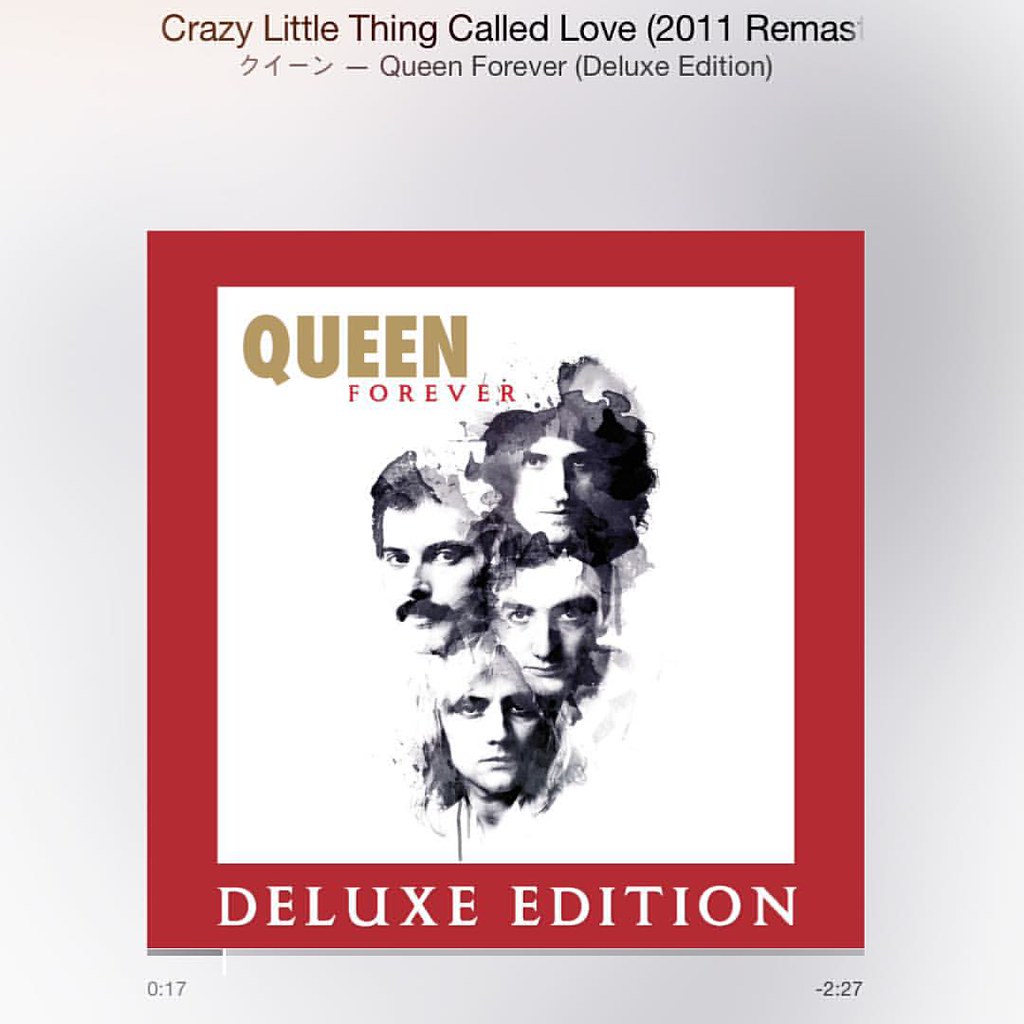
12. **A Resounding Musical Legacy**
Beyond his lifetime achievements, Freddie Mercury’s musical legacy continued to resonate profoundly after his death, earning him numerous posthumous accolades that solidified his place in music history. As a member of Queen, he was posthumously inducted into the Rock and Roll Hall of Fame in 2001, followed by the Songwriters Hall of Fame in 2003, and the UK Music Hall of Fame in 2004, recognizing his immense contributions across multiple facets of music.
His exceptional artistry and groundbreaking influence on British music were further acknowledged when he and Queen received the Brit Award for Outstanding Contribution to British Music in 1990. Poignantly, just one year after his passing, Mercury individually received the same prestigious award. In 2005, Queen was collectively honored with an Ivor Novello Award for Outstanding Song Collection from the British Academy of Songwriters, Composers, and Authors, underscoring the enduring brilliance of his songwriting.
Mercury’s solo endeavors also carved out a significant space in music history, demonstrating his versatility and adventurous spirit beyond the confines of Queen. His two full albums outside the band, *Mr. Bad Guy* (1985) and *Barcelona* (1988), showcased his willingness to explore diverse musical territories. *Mr. Bad Guy* debuted in the top ten of the UK Album Charts, and a 1993 remix of “Living on My Own,” a single from the album, posthumously reached number one on the UK singles chart, earning him another Ivor Novello Award.
The *Barcelona* album, a unique and groundbreaking collaboration with Spanish soprano Montserrat Caballé, masterfully combined elements of popular music and opera. Despite some critical uncertainty about its genre-bending nature, the album achieved commercial success, and its title track debuted at No. 8 in the UK and was also a hit in Spain. It gained massive airplay as the official anthem of the 1992 Summer Olympics, a powerful testament to its universal appeal. Additionally, Mercury’s solo singles, such as his rendition of the 1950s hit “The Great Pretender,” also found significant chart success, peaking at number four in the UK in 1987, ensuring his distinctive voice remained vibrant in the musical landscape.
Read more about: Eddie Murphy’s Unwavering Stance: Why the Comedy Icon Will Never Perform His Own Stunts Again
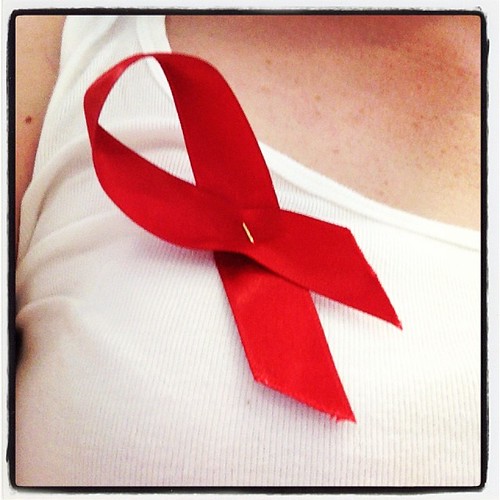
13. **Igniting AIDS Awareness and Combating Stigma**
At the height of the HIV/AIDS crisis in the early 1990s, Freddie Mercury’s public diagnosis and subsequent death served as a powerful and undeniable catalyst for global conversations about healthcare and the pervasive stigma surrounding the disease, particularly within the gay community. His prominence as a world-renowned figure brought the devastating reality of the epidemic into sharp focus for millions, transcending geographical and social boundaries.
His courageous, albeit delayed, public acknowledgment of his condition broke through layers of fear, silence, and misinformation that often surrounded HIV/AIDS. This deeply personal revelation transformed into a public statement that challenged societal prejudices and fostered a greater sense of urgency for medical research, compassionate understanding, and support for those afflicted.
The context explicitly highlights that his “willingness to live openly and authentically as himself solidified his legacy as a performer and queer icon.” This authenticity, even amidst immense personal struggle and public scrutiny, resonated profoundly, providing a vital beacon of representation and strength for many navigating similar challenges and societal pressures during a time of widespread fear and prejudice.
In a poignant and impactful continuation of his legacy, a major concert was held in tribute to him at Wembley Stadium in 1992, less than a year after his death. This event not only celebrated his extraordinary life and music, featuring many of the world’s most renowned artists, but also served as a crucial benefit for AIDS awareness, translating his personal tragedy into a collective, global effort to combat the disease and support those affected by it.
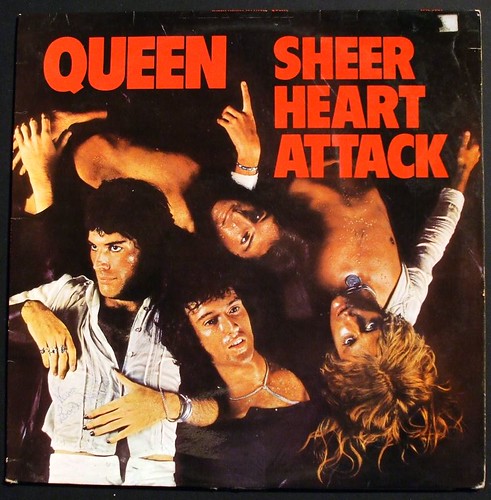
14. **An Enduring Cultural Icon**
Freddie Mercury’s impact extends far beyond his groundbreaking musical achievements and his tragic battle with AIDS; he remains an enduring cultural icon whose influence continues to shape perceptions of artistry, identity, and resilience across generations. His extraordinary journey, from Farrokh Bulsara in Zanzibar to the flamboyant, globally revered frontman of Queen, captivated the world and carved a permanent, indelible niche in popular consciousness.
His unique blend of theatricality, raw vocal power, and unapologetic self-expression forged a persona that transcended traditional rock stardom and redefined the possibilities of live performance. As his collaborator David Bowie noted, Mercury “took it over the edge” in theatrical rock performance, possessing a rare ability to make “the last person at the back of the furthest stand in a stadium feel that he was connected.” This unparalleled showmanship cemented his status as one of the greatest and most compelling live performers in history.
The sentiment encapsulated by Gay Times writer John Marshall—that Mercury’s stance on his personal life was “as if Freddie Mercury was saying to the world, ‘I am what I am. So what?'”—resonates powerfully as a statement of unwavering authenticity and defiance. This unyielding commitment to self, even under intense public scrutiny of his uality, offered a profound and courageous message of self-acceptance and freedom, particularly in an era grappling with rigid social norms and widespread prejudice.
Read more about: John McQueen, Pioneer of Contemporary Basketry, Dies at 82: Transforming Nature’s Discards into Profound Art
Even decades after his passing, his vibrant presence and profound impact remain undiminished, as evidenced by his inclusion in the BBC’s “100 Greatest Britons” poll in 2002, where he was voted number 58. His remarkable story, characterized by unparalleled artistic brilliance, immense personal struggle, and a profound, often accidental, contribution to social awareness, continues to inspire and provoke thought, ensuring that Freddie Mercury’s legacy will forever be etched into the fabric of global culture, a true testament to a life lived without compromise.



